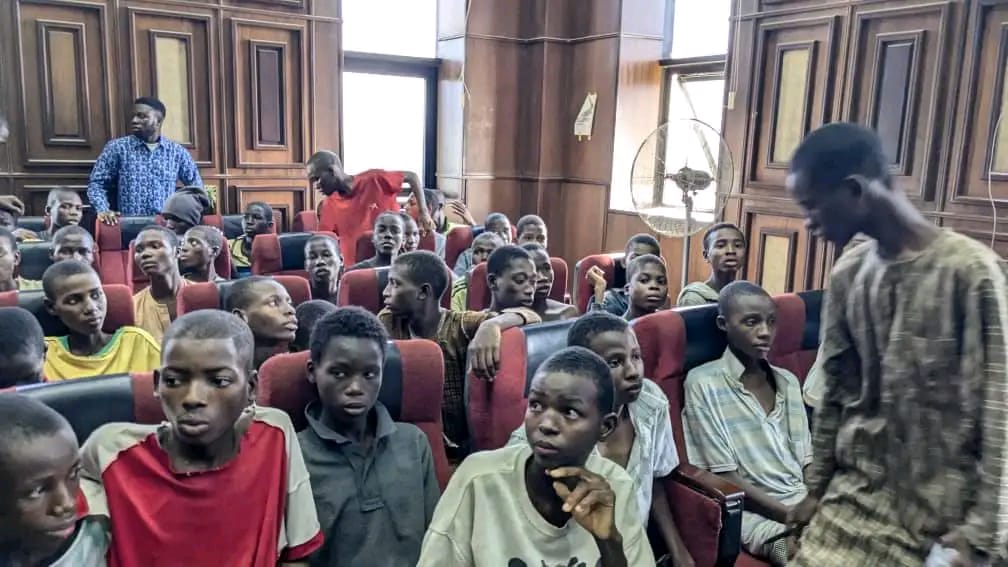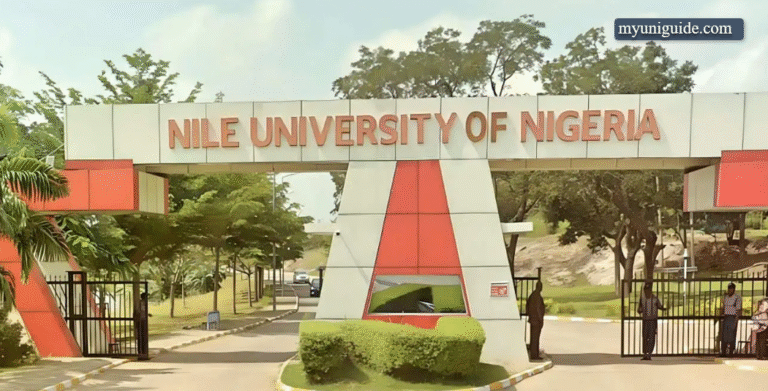Hierarchy of Courts in Nigeria – All You Need to Know
The hierarchy of courts in Nigeria explains how courts are organised, arranged, and structured at different levels.
It’s designed to ensure justice is served and allows for appeals to higher courts if a lower court’s decision is deemed unsatisfactory.
In simple terms, the court hierarchy in Nigeria refers to the ranking of courts based on their authority and jurisdiction.
Higher courts have more power to decide cases, and their judgments are binding on lower courts.
For instance, if a lower court’s ruling doesn’t seem fair, the aggrieved party can appeal to a higher court for a review.
This system is essential to maintain order and fairness in the legal process.
Section 6 (1) of the Constitution of the Federal Republic of Nigeria 1999 (as amended) clearly outlines that the judicial powers of the federation shall be vested in the courts.
Importantly, a court must have jurisdiction to hear a case.
Jurisdiction simply means the authority of a court to hear and decide a case.
Without proper jurisdiction, a court’s decision becomes invalid.
A landmark Nigerian case, Madukolu v. Nkemdilim, laid out the conditions for a court to have jurisdiction:
- The court must be properly constituted.
- The subject matter must fall within the court’s authority.
- The case must follow due process of law and fulfil all conditions.
If any of these conditions are missing, the court’s proceedings are considered null and void.
Hierarchy of Courts in Nigeria
In Nigeria, the judiciary is organised into two broad categories: Superior Courts of Record and Inferior Courts.
Each plays a distinct role within the legal framework, operating at different levels of authority within the judicial hierarchy.
Superior Courts of Record
These courts are established under section 5 of the Constitution of Nigeria 1999 (as amended) and possess extensive jurisdiction.
They deal with significant matters of law, and their judgments are often binding on inferior courts.
These include:
- Supreme Court
- Court of Appeal
- Federal High Court
- High Court of the Federal Capital Territory, Abuja
- High Court of a State
- Sharia Court of Appeal of FCT, Abuja
- Sharia Court of Appeal of a State
- Customary Court of Appeal of FCT, Abuja
- Customary Court of Appeal of a State,
- Such other courts as may be authorised by law to exercise jurisdiction on matters with respect to which the National Assembly make laws and
- Such other courts as may be authorised by law to exercise jurisdiction at first instance or on appeal on matters with respect to which a House of Assembly may make laws.
a) Supreme Court
The Supreme Court of Nigeria, established under Section 230 of the 1999 Constitution, is the highest in the land.
It is the final arbiter of legal disputes and holds the ultimate authority in judicial matters.
The Supreme Court is composed of the Chief Justice of Nigeria (CJN) and a maximum of 21 Justices, as prescribed by an Act of the National Assembly.
The Supreme Court has both original and appellate jurisdiction.
Supreme Court have original jurisdiction in the following instances:
- Federal Government vs State Government
- State Government vs State Government
- National Assembly vs President
- National Assembly vs the President
- National Assembly vs State Government, etc.
Furthermore, the Supreme Court has appellate jurisdiction:
- It supervises decisions of the Court of Appeal and other lower courts.
- It reviews appeals on civil, criminal, and constitutional matters, ensuring justice is upheld.
b) Court of Appeal
The court of appeal is established under section 237 of the constitution of the Federal Republic of Nigeria 1999 (as amended).
The Court of Appeal is a court of appellate jurisdiction with limited original jurisdiction in election petition cases.
This court has exclusive original jurisdiction to hear and determine any question as to whether:
- Any person has been validly elected to the office of the President or Vice-President under the constitution or
- The term of office of the President or Vice-President has ceased or
- The office of President or Vice-President has become vacant.
In its appellate jurisdiction, the court has exclusive jurisdiction to hear and determine appeals from:
- Federal High court
- the High of the Capital Territory, Abuja.
- the High Court of a State
- the Sharia Court of Appeal of the FCT
- the Customary Court of Appeal of Federal Capital Territory
- the Customary Court of Appeal of a State
- A court of marital or other Tribunals as may be prescribed by an Act of the National Assembly.
Appeal lies as the right to the Court of Appeal from the decisions of the Federal High Court of a High Court.
C) Federal High Court
The Federal High Court is established under section 249 of the Constitution.
The Federal High Court by virtue of section 251, has exclusive jurisdiction in civic causes and matters:
- Relating to the revenue of the Government of the Federation in which the said Government, its organs or a person suing or being sued on its behalf is a party.
- Connected with or pertaining to the taxation of companies and other bodies established or carrying on business in Nigeria and all other persons subject to Federation taxation.
- In respect of treason, treasonable felony and allied offences.
- Diplomatic, consular and trade representation
- and many other matters as outlined in section 251 of the constitution of the Federal Republic of Nigeria 1999 (as amended).
D) High Court of the Federal Capital Territory, Abuja
The High Court of the Federal Capital Territory (FCT), Abuja was introduced under the 1989 Constitution and is firmly established under Section 255 of the 1999 Constitution (as amended).
This court comprises:
- A Chief Judge.
- Such other number of Judges as may be prescribed by an Act of the National Assembly.
The High Court of the FCT has broad jurisdiction over both civil and criminal matters, making it a critical component of Nigeria’s judicial system.
The court handles disputes concerning:
- Cases where the existence, scope, or enforcement of a legal right, power, or duty is in question.
- Issues involving privileges, interests, or obligations under civil law.
- Cases involving penalties, punishments, or liabilities for crimes committed by individuals.
- Matters relating to forfeiture of assets or imposition of penalties for violations of the law, etc.
E) High Court of a State
Section 270 of the Constitution establishes a High Court for each State of the Federation.
- Cases where the existence, scope, or enforcement of a legal right, power, or duty is in question.
- Issues involving privileges, interests, or obligations under civil law.
- Cases involving penalties, punishments, or liabilities for crimes committed by individuals.
- Matters relating to forfeiture of assets or imposition of penalties for violations of the law, etc
This jurisdiction includes original, appellate and supervisory functions.
Addendum
- Sharia Court of Appeal of a State established under section 275 of the constitution of Nigeria. This court has appellate jurisdiction and supervisory jurisdiction in civil proceedings involving questions of Islamic Personal law that it’s competent to decide.
- Customary Court of Appeal of a State is provided for under section 280 of the Constitution. This court exercises appellate and supervisory jurisdiction in civil proceedings involving questions of customary law.
Inferior Courts
These courts handle fewer complex matters and are subordinate to superior courts.
These include:
- Magistrate courts
- Juvenile courts
- Tribunals
- National Industrial Court
- Courts Martial, etc
A) Magistrate courts
Magistrate Courts are inferior courts, and they don’t qualify for records.
Each state of the Federation has its own magistrates’ Court system.
These courts are established under the respective Magistrates’ Courts Law in the Southern States and the District Courts Law in the Northern States.
Magistrates’ Courts, like the superior courts administer both the common law and equity and have the power to grant all legal and equitable remedies.
They are enjoined to observe and enforce the observance of every native law and custom that is not repugnant to natural justice, equity and good conscience and not incompatible with any local statute.
B) Juvenile courts
Juvenile courts also known as Family Courts are special courts established for the trial and welfare of children and young persons.

These courts were first established under the Children and Young Persons Ordinance of 1943 providing for the setting up of approved schools, remand homes and probation officers to cater for children under the age of 17.
Today, the courts exist in different states.
C) National Industrial court
The National Industrial Court is established under section 20 of the Trade Disputes Act for the settlement of trade disputes, the interpretation of collective agreements and matters connected therewith.
The court is conferred with exclusive jurisdiction.
- To make awards for the purpose of settling trade disputes and
- To determine questions as to any collective agreement, any award made by an arbitration tribunal or by the court, and the terms of settlement of any trade dispute.
D) Courts Martial
The Armed Forces Act provides for various offences, the punishment thereof and the mode of trial.
One of the special courts for the trial of persons of the more serious offences in the armed forces is the court-martial.
This was introduced along with military law in Nigeria.
The composition, jurisdiction and powers of courts martial in the three armed forces – Army, Navy, and the Air Force are now provided for jointly in the Armed Force Decree.
The Decree recognises two types of courts martial with different jurisdictions:
- The general court martial consists of president and not less than four members, a waiting member, a liaison officer and a Judge Advocate; and
- The special court martial, consists of a president and not less than two members, a waiting member, a liaison officer and a Judge Advocate.
The jurisdiction of a general court martial extends to the trial of persons who are subject to service law under the Decree for an offence triable by a court martial or who by law of war is subject to trial by a military tribunal.
E) Tribunals
Tribunals are an integral part of the entire adjudicatory system.
Created by stature; they serve to complement the traditional court system by exercising judicial or quasi-judicial functions.
Tribunals can settle disputes between parties without them going to court.
Conclusion
The advantages of the Nigerian court hierarchy include the doctrine of case law, which stipulates the judgment of the Higher Court is binding on the lower court.
Therefore, if there is no hierarchy of courts, this cannot be achieved.
The major disadvantage of the Nigerian court system is that there are inadequate Judges in each court system, and the judges are thereby overwhelmed with a plethora of cases which causes protracted delays in resolving simple disputes through a court process by the litigants.
I hope you found my article on the Hierarchy of Courts in Nigeria helpful.






